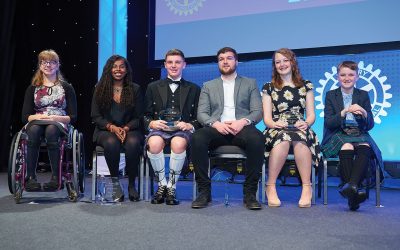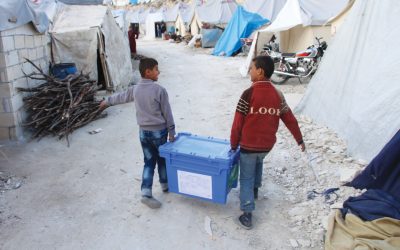Last autumn, 11 members of one Lincolnshire family were jailed after one of the worst cases of modern slavery on these shores.
The gang, who each received hefty prison sentences, preyed on homeless people and some with learning difficulties, forcing them to work for little or no pay and live in squalid conditions for up to 26 years.
The family were described in court as “chilling in their mercilessness” ordering one victim to dig his own grave.
Chief Superintendent Nikki Mayo from Lincolnshire Police revealed that the victims, aged between 18 and 63, had been picked up from all over the country and specifically targeted because they were vulnerable and homeless.
She said: “We knew these men were being kept in very poor conditions and made to work for little money.
“The extent of these conditions soon became apparent – the victims were ‘accommodated’ in caravans without running water or access to toilet facilities, and in some cases the electricity to them was dangerously obtained from a nearby pylon.
“The men were incredibly vulnerable.
“Some had learning disabilities or mental health issues while others were completely dependent on alcohol or drugs.
“Some had no idea what was happening when we arrived at the site or when they were transported into the care of support services and we worked hard to gain their trust.”
This chilling case brought into sharp focus a crime phenomenon which has largely been hidden from the public’s eyes.
The extent of these conditions soon became apparent – the victims were ‘accommodated’ in caravans without running water or access to toilet facilities, and in some cases the electricity to them was dangerously obtained from a nearby pylon.”
Modern slavery involves the recruitment of vulnerable children and adults, moving them to another place, often another country, using threats, force or deception to make them do something against their will. It involves exploiting them to make money or provide services.
And it is on the increase with 43 million people in slavery across the world, according to the Global Slavery Index. In the UK, The Salvation Army, has reported a 300% increase in the number of victims referred for support in the past six years.
According to the Independent Anti-Slavery Commissioner, Kevin Hyland OBE, the estimate of 13,000 victims in the UK is based on old intelligence.
He claims the true number is in the tens of thousands.
It has prompted Shaun Sawyer, Chief Constable of Devon & Cornwall Police, to urge Rotary to join the fight against modern slavery.
Speaking at the Rotary conference in Torquay in April, the chief constable said: “I don’t know how I can borrow the energy Rotarians have in the way you have taken on polio, but as and when you eradicate polio, may I ask you to consider human trafficking and slavery as your next endeavour?”
Mr Sawyer, who is the Association of Chief Police Officers’ national lead on modern slavery, added: “Human trafficking in children, in women in particular for sexual exploitation, has never been greater. And the issue of labour exploitation is particularly prevalent, especially those with learning difficulties and infirmity.
“Human trafficking is the exploitation of one human being for another human being’s privilege. Whether it is economic or personal gratification, it has no place in modern society.”
Addressing Rotarians in Torquay, the police chief said: “There are many battles made in a battle to keep a society safe and this generation has got a lot to offer.
“Because if it is not us, who? And if not now, then when will we combat human trafficking?”
Human trafficking in children, in women in particular for sexual exploitation, has never been greater.”
Dr Joan Williams is a member of Soroptimist International, which is supporting the Welsh government’s fight against modern slavery.
According to Dr Williams, the types of exploitation are wide ranging.
A most gruesome form of slavery is organ harvesting, where victims are trafficked in order to sell their body parts and organs for transplant such as ovaries, kidneys, liver and eyes.
“Due to the hidden nature of slavery and the victim’s reluctance or inability to seek help, you may not realise you’ve come into contact with a victim,” added Dr Williams.
“Some of the signs to look out for include limited family contact, physical abuse, distrust of authority, having no friends, escorted everywhere and acting as if under another’s control, avoiding eye contact or not in possession of their passport.”
Dr Williams said that a number of Soroptimists have been trained to raise awareness of modern slavery in communities, through the Wales Anti-Slavery Training Programme.
She hopes Rotarians across the UK will also pick up the mantle and get involved.
For further information contact:
Euan Fraser, Human Trafficking Foundation.
Kim-Ann Williamson, Wales Anti-Slavery Leadership Group Strategic Objectives Lead and involved in the delivery of UK Training
Stephen Chapman, Wales Anti-Slavery Coordinator


























































